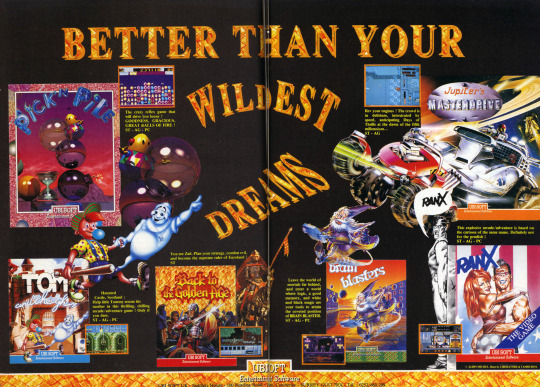#atari corporation
Text
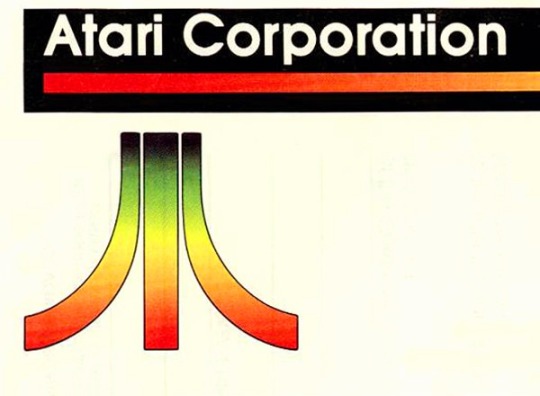

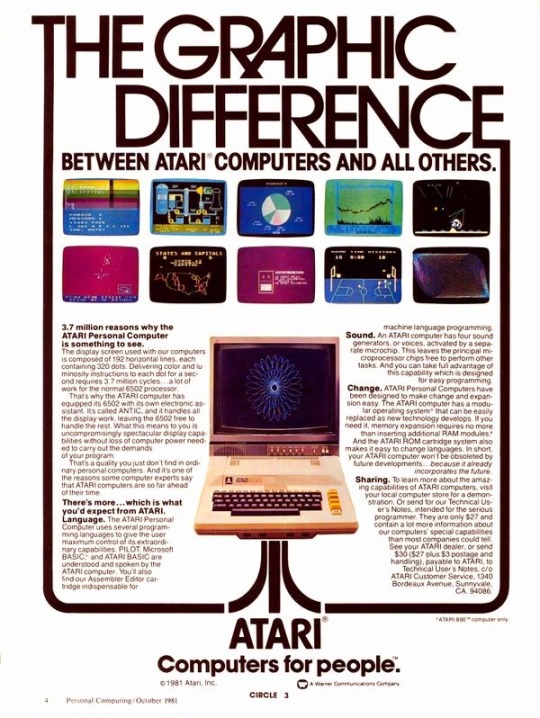




🇺🇲 Dive into the realm of computing nostalgia with a look back at the Atari Corporation's iconic personal computers—the Atari 400/800, Atari 520ST, and Atari Falcon! Introduced by Atari Corporation, a pioneer in the world of gaming and computing, these machines left an indelible mark on the landscape of home computing during their respective eras.
⌨️ The Atari 400 and Atari 800 made their debut in 1979, offering users a glimpse into the future of personal computing. With their sleek design and innovative features, including custom graphics and sound capabilities, these machines quickly gained a dedicated following among early computer enthusiasts.
🚀 Fast forward to 1985, and Atari unleashed the Atari 520ST—a groundbreaking computer that revolutionized the industry with its impressive performance and affordability. Boasting a powerful Motorola 68000 processor and advanced graphical capabilities, the 520ST became a favorite among musicians, artists, and gamers alike, earning a reputation as a versatile and reliable machine.
💻 In 1992, Atari continued its legacy of innovation with the introduction of the Atari Falcon—a high-performance computer designed for the next generation of computing enthusiasts. Featuring a Motorola 68030 processor, enhanced graphics and multimedia capabilities, and built-in MIDI support, the Falcon pushed the boundaries of what was possible in home computing at the time.
💾 The Atari 400/800 series was known for its distinctive membrane keyboard and cartridge-based software, while the Atari 520ST gained popularity for its compatibility with industry-standard software and peripherals, earning it a place in the hearts of musicians and creative professionals.
🕹️ Although the Atari Corporation's foray into personal computing was relatively short-lived, the legacy of the Atari 400/800, Atari 520ST, and Atari Falcon lives on in the annals of computing history, inspiring generations of technology enthusiasts and paving the way for future innovations.
#techtime chronicles#old computers#atari#atari corporation#companies#computing#computers#computer#computer stuff#innovation#industry#usa#made in usa#atari 400#atari 800#atari vcs#atari falcon#atari 520ST#computer science#computer accessories#basic#keyboard#hardware#software#motorola#processor#multimedia#graphic#old technology#old tech
11 notes
·
View notes
Text

Space Invaders box art by Gary Norman (Taito, Atari, 1980)
436 notes
·
View notes
Text

Elizabeth Betty Ryan
#elizabeth betty ryan#elizabeth ryan#elizabeth tylko#people#programming#programmer#game developers#game developer#game development#quantum#atari#atari quantum#video game programmer#female programmers#female developers#female game developers#female game programmers#wikipedia#wikipedia pictures#general computer corporation#arcade gaming#arcade games#arcade#retro gaming#retro games#color vector#arcade video game#gaming#history#video game history
26 notes
·
View notes
Text
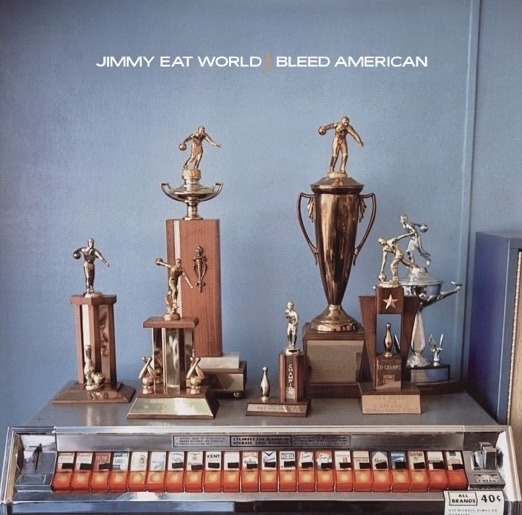

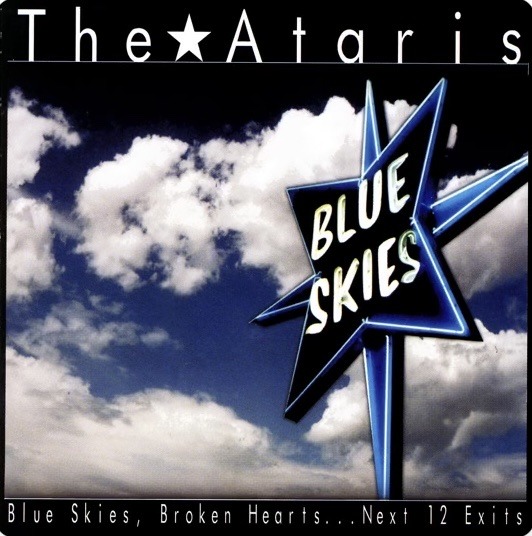




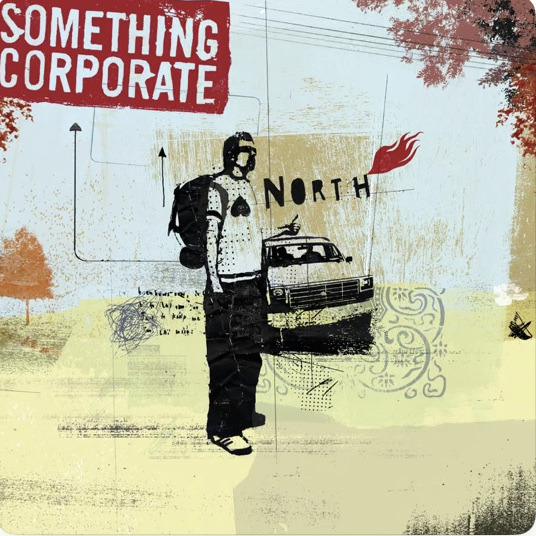
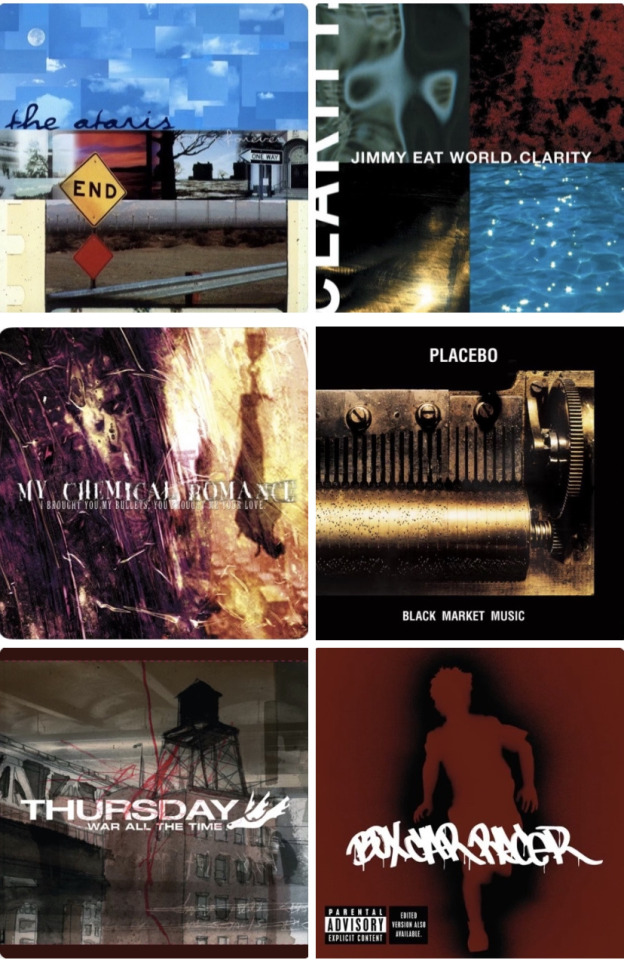
it’s been a long time, a very long time, since i’ve heard your voice
albums I loved growing up: the pop-punk/emo/screamo/post-hardcore edition
#my cd collection#high school#emo#pop punk#the ataris#jimmy eat world#new found glory#dashboard confessional#my chemical romance#placebo#boxcar racer#the early november#further seems forever#something corporate#finch#thursday#00s#90s#music
36 notes
·
View notes
Text

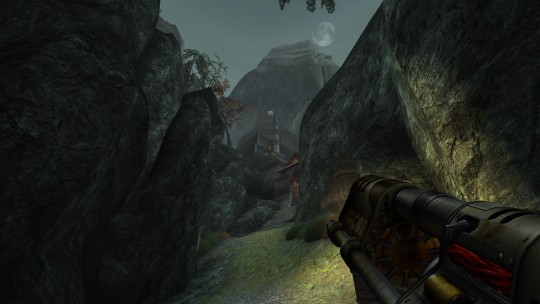

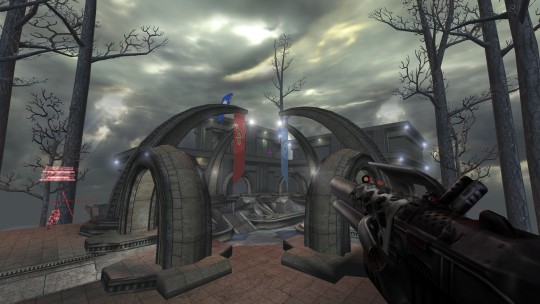
Unreal Tournament 2004 (Epic Games/Digital Extremes)
It's my birthday so I'm posting one of my favorite games of all time! 🥳
#Unreal Tournament 2004#2004#Epic Games#Digital Extremes#Psyonix#Streamline Studios#Atari#Jeff Morris#Cliff Bleszinski#Steve Polge#Kevin Riepl#Starsky Partridge#Will Nevins#Unreal#Unreal Engine 2#Unreal series#Unreal Tournament#UT2K4#Skaarj#Liandri Corporation#Thunder Crash#Unreal franchise#2004 games#UE2#PC#PC gaming#PC games#Steam#gaming#pc games
2 notes
·
View notes
Photo
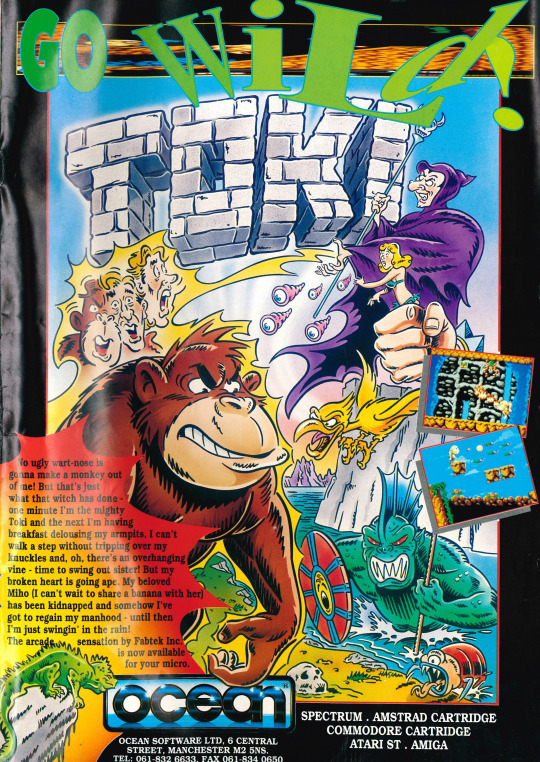
UK 1991
28 notes
·
View notes
Text
Pocky & Rocky Reshrined releases today for the PS4 and Switch.
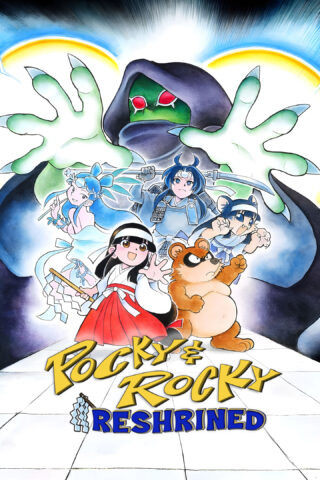
#Pocky & Rocky Reshrined#Pocky and Rocky Reshrined#Pocky and Rocky#KiKi KaiKai#Natsume#Natsume Atari#Taito Corporation#Getting this digitally later.
5 notes
·
View notes
Text
The director of the New York Office of the High Commissioner for Human Rights of the UN (UN OHCHR), Craig Mokhiber, has resigned in a letter dated 28 October 2023
the resignation letter can be found embedded in this tweet by Rami Atari (@.Raminho) dated 31 October 2023.
The letters are here:
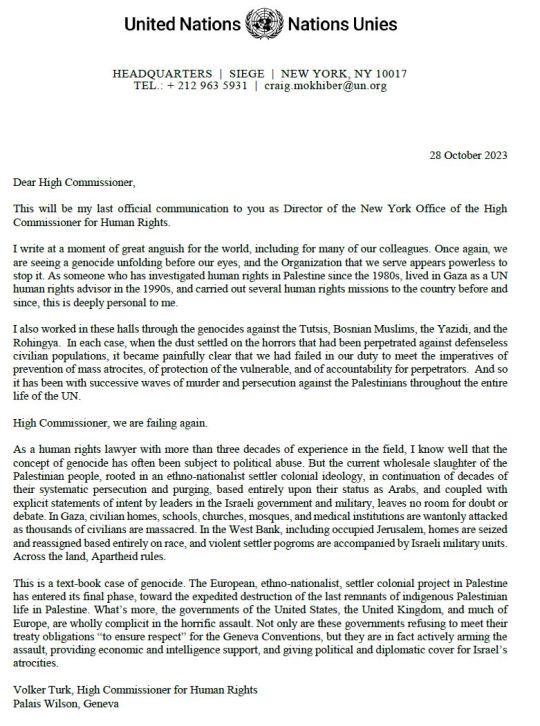
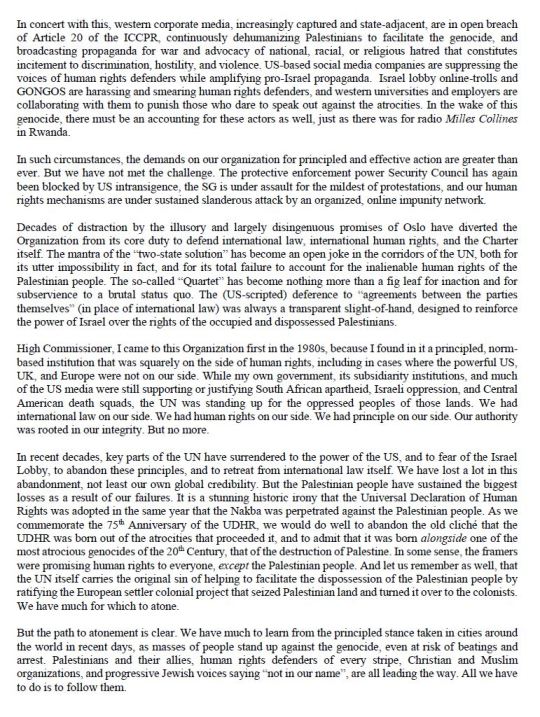

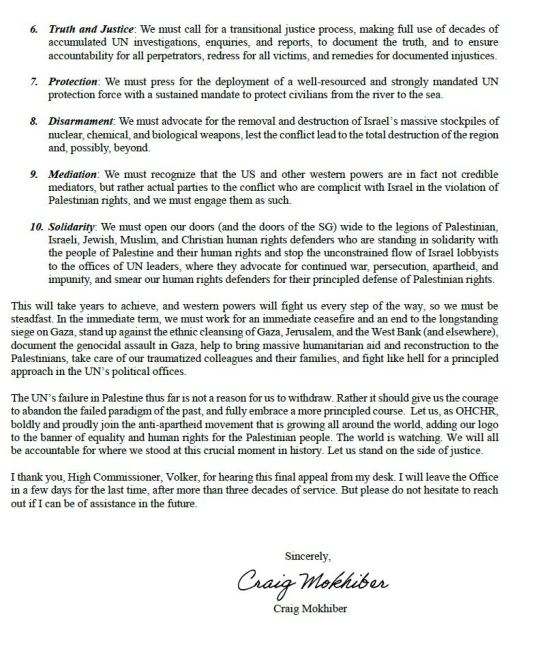
Transcription:
United Nations | Nations Unies
HEADQUARTERS I SIEGE I NEW YORK, NY 10017
28 October 2023
Dear High Commissioner,
This will be my last official communication to you as Director of the New York Office of the High Commissioner for Human Rights.
I write at a moment of great anguish for the world, including for many of our colleagues. Once again, we are seeing a genocide unfolding before our eyes, and the Organization that we serve appears powerless to stop it. As someone who has investigated human rights in Palestine since the 1980s, lived in Gaza as a UN human rights advisor in the 1990s, and carried out several human rights missions to the country before and since, this is deeply personal to me.
I also worked in these halls through the genocides against the Tutsis, Bosnian Muslims, the Yazidi, and the Rohingya. In each case, when the dust settled on the horrors that had been perpetrated against defenseless civilian populations, it became painfully clear that we had failed in our duty to meet the imperatives of prevention of mass atrocites, of protection of the vulnerable, and of accountability for perpetrators. And so it has been with successive waves of murder and persecution against the Palestinians throughout the entire life of the UN.
High Commissioner, we are failing again.
As a human rights lawyer with more than three decades of experience in the field, I know well that the concept of genocide has often been subject to political abuse. But the current wholesale slaughter of the Palestinian people, rooted in an ethno-nationalist settler colonial ideology, in continuation of decades of their systematic persecution and purging, based entirely upon their status as Arabs, and coupled with explicit statements of intent by leaders in the Israeli government and military, leaves no room for doubt or debate. In Gaza, civilian homes, schools, churches, mosques, and medical institutions are wantonly attacked as thousands of civilians are massacred. In the West Bank, including occupied Jerusalem, homes are seized and reassigned based entirely on race, and violent settler pogroms are accompanied by Israeli military units. Across the land, Apartheid rules.
This is a text-book case of genocide. The European, ethno-nationalist, settler colonial project in Palestine has entered its final phase, toward the expedited destruction of the last remnants of indigenous Palestinian life in Palestine. What's more, the governments of the United States, the United Kingdom, and much of Europe, are wholly complicit in the horrific assault. Not only are these governments refusing to meet their treaty obligations "to ensure respect" for the Geneva Conventions, but they are in fact actively arming the assault, providing economic and intelligence support, and giving political and diplomatic cover for Israel's atrocities.
Volker Turk, High Commissioner for Human Rights Palais Wilson, Geneva
In concert with this, western corporate media, increasingly captured and state-adjacent, are in open breach of Article 20 of the ICCPR, continuously dehumanizing Palestinians to facilitate the genocide, and broadcasting propaganda for war and advocacy of national, racial, or religious hatred that constitutes incitement to discrimination, hostility, and violence. US-based social media companies are suppressing the voices of human rights defenders while amplifying pro-Israel propaganda. Israel lobby online-trolls and GONGOS are harassing and smearing human rights defenders, and western universities and employers are collaborating with them to punish those who dare to speak out against the atrocities. In the wake of this genocide, there must be an accounting for these actors as well, just as there was for radio Mules Collins in Rwanda.
In such circumstances, the demands on our organization for principled and effective action are greater than ever. But we phave not met the challenge. The protective enforcement power Security Council has again been blocked by US intransigence, the SG [UN Secretary General] is under assault for the mildest of protestations, and our human rights mechanisms are under sustained slanderous attack by an organized, online impunity network.
Decades of distraction by the illusory and largely disingenuous promises of Oslo have diverted the Organization from its core duty to defend international law, international human rights, and the Charter itself. The mantra of the "two-state solution" has become an open joke in the corridors of the UN, both for its utter impossibility in fact, and for its total failure to account for the inalienable human rights of the Palestinian people. The so-called "Quartet" has become nothing more than a fig leaf for inaction and for subservience to a brutal status quo. The (US-scripted) deference to "agreements between the parties themselves" (in place of international law) was always a transparent slight-of-hand, designed to reinforce the power of Israel over the rights of the occupied and dispossessed Palestinians.
High Commissioner, I came to this Organization first in the 1980s, because I found in it a principled, norm-based institution that was squarely on the side of human rights, including in cases where the powerful US, UK, and Europe were not on our side. While my own government, its subsidiarity institutions, and much of the US media were still supporting or justifying South African apartheid, Israeli oppression, and Central American death squads, the UN was standing up for the oppressed peoples of those lands. We had international law on our side. We had human rights on our side. We had principle on our side. Our authority was rooted in our integrity. But no more.
In recent decades, key parts of the UN have surrendered to the power of the US, and to fear of the Israel Lobby, to abandon these principles, and to retreat from international law itself. We have lost a lot in this abandonment, not least our own global credibility. But the Palestinian people have sustained the biggest losses as a result of our failures. It is a stunning historic irony that the Universal Declaration of Human Rights was adopted in the same year that the Nakba was perpetrated against the Palestinian people. As we commemorate the 75th Anniversary of the UDHR, we would do well to abandon the old cliché that the UDHR was born out of the atrocities that proceeded it, and to admit that it was born alongside one of the most atrocious genocides of the 20th Century, that of the destruction of Palestine. In some sense, the framers were promising human rights to everyone, except the Palestinian people. And let us remember as well, that the UN itself carries the original sin of helping to facilitate the dispossession of the Palestinian people by ratifying the European settler colonial project that seized Palestinian land and turned it over to the colonists. We have much for which to atone.
But the path to atonement is clear. We have much to learn from the principled stance taken in cities around the world in recent days, as masses of people stand up against the genocide, even at risk of beatings and arrest. Palestinians and their allies, human rights defenders of every stripe, Christian and Muslim organizations, and progressive Jewish voices saying "not in our name", are all leading the way. All we have to do is to follow them.
Yesterday, just a few blocks from here, New York's Grand Central Station was completely taken over by thousands of Jewish human rights defenders standing in solidarity with the Palestinian people and demanding an end to Israeli tyranny (many risking arrest, in the process). In doing so, they stripped away in an instant the Israeli hasbara propaganda point (and old antisemitic trope) that Israel somehow represents the Jewish people. It does not. And, as such, Israel is solely responsible for its crimes. On this point, it bears repeating, in spite of Israel lobby smears to the contrary, that criticism of Israel's human rights violations is not antisemitic, any more than criticism of Saudi violations is Islamophobic, criticism of Myanmar violations is anti-Buddhist, or criticism of Indian violations is anti-Hindu. When they seek to silence us with smears, we must raise our voice, not lower it. I trust you will agree, High Commissioner, that this is what speaking truth to power is all about.
But I also find hope in those parts of the UN that have refused to compromise the Organization's human rights principles in spite of enormous pressures to do so. Our independent special rapporteurs, commissions of enquiry, and treaty body experts, alongside most of our staff, have continued to stand up for the human rights of the Palestinian people, even as other parts of the UN (even at the highest levels) have shamefully bowed their heads to power. As the custodians of the human rights norms and standards, OHCHR. has a particular duty to defend those standards. Our job, I believe, is to make our voice heard, from the Secretary-General to the newest UN recruit, and horizontally across the wider UN system, incisting that the human rights of the Palestinian people are not up for debate, negotiation, or compromise anywhere under the blue flag.
What, then, would a UN-norm-based position look like? For what would we work if we were true to our rhetorical admonitions about human rights and equality for all, accountability for perpetrators, redress for victims, protection of the vulnerable, and empowerment for rights-holders, all under the rule of law? The answer, I believe, is simple—if we have the clarity to see beyond the propagandistic smokescreens that distort the vision of justice to which we are sworn, the courage to abandon fear and deference to powerful states, and the will to truly take up the banner of human rights and peace. To be sure, this is a long-term project and a steep climb. But we must begin now or surrender to unspeakable horror. I see ten essential points:
Legitimate action: First, we in the UN must abandon the failed (and largely disingenuous) Oslo paradigm, its illusory two-state solution, its impotent and complicit Quartet, and its subjugation of international law to the dictates of presumed political expediency. Our positions must be unapologetically based on international human rights and international law.
Clarity of Vision: We must stop the pretense that this is simply a conflict over land or religion between two warring parties and admit the reality of the situation in which a disproportionately powerful state is colonizing, persecuting, and dispossessing an indigenous population on the basis of their ethnicity.
One State based on human rights: We must support the establishment of a single, democratic, secular state in all of historic Palestine, with equal rights for Christians, Muslims, and Jews, and, therefore, the dicmantling of the deeply racist, settler-colonial project and an end to apartheid across the land.
Fighting Apartheid: We must redirect all UN efforts and resources to the struggle against apartheid, just as we did for South Africa in the 1970s, 80s, and early 90s.
Return and Compensation: We must reaffirm and insist on the right to return and full compensation for all Palestinians and their families currently living in the occupied territories, in Lebanon, Jordan, Syria, and in the diaspora across the globe.
Truth and Justice: We must call for a transitional justice process, making full use of decades of accumulated UN investigations, enquiries, and reports, to document the truth, and to ensure accountability for all perpetrators, redress for all victims, and remedies for documented injustices.
Protection: We must press for the deployment of a well-resourced and strongly mandated UN protection force with a sustained mandate to protect civilians from the river to the sea.
Disarmament: We must advocate for the removal and destruction of Israel's massive stockpiles of nuclear, chemical, and biological weapons, lest the conflict lead to the total destruction of the region and, possibly, beyond.
Mediation: We must recognize that the US and other western powers are in fact not credible mediators, but rather actual parties to the conflict who are complicit with Israel in the violation of Palestinian rights, and we must engage them as such.
Solidarity: We must open our doors (and the doors of the SG) wide to the legions of Palestinian, Israeli, Jewish, Muslim, and Christian human rights defenders who are standing in solidarity with the people of Palestine and their human rights and stop the unconstrained flow of Israel lobbyists to the offices of UN leaders, where they advocate for continued war, persecution, apartheid, and impunity, and smear our human rights defenders for their principled defense of Palestinian rights.
This will take years to achieve, and western powers will fight us every step of the way, so we must be steadfast. In the immediate term, we must work for an immediate ceasefire and an end to the longstanding siege on Gaza, stand up against the ethnic cleansing of Gaza, Jerusalem, and the West Bank (and elsewhere), document the genocidal assault in Gaza, help to bring massive humanitarian aid and reconstruction to the Palestinians, take care of our traumatized colleagues and their families, and fight like hell for a principled approach in the UN's political offices.
The UN's failure in Palestine thus far is not a reason for us to withdraw. Rather it should give us the courage to abandon the failed paradigm of the past, and fully embrace a more principled course. Let us, as OHCHR, boldly and proudly join the anti-apartheid movement that is growing all around the world, adding our logo to the banner of equality and human rights for the Palestinian people. The world is watching. We will all be accountable for where we stood at this crucial moment in history. Let us stand on the side of justice.
I thank you, High Commissioner, Volker, for hearing this final appeal from my desk. I will leave the Office in a few days for the last time, after more than three decades of service. But please do not hesitate to reach out if I can be of assistance in the future.
Sincerely,
Craig Mokhiber
End of transcription.
Emphasis (bolding) is my own. I have added links, where relevant, to explanations of concepts the former Director refers to.
#Israel#Palestine#October 2023#28 October 2023#United Nations#Described#Long post#I’ll add more links to the things he is talking about later
15K notes
·
View notes
Photo
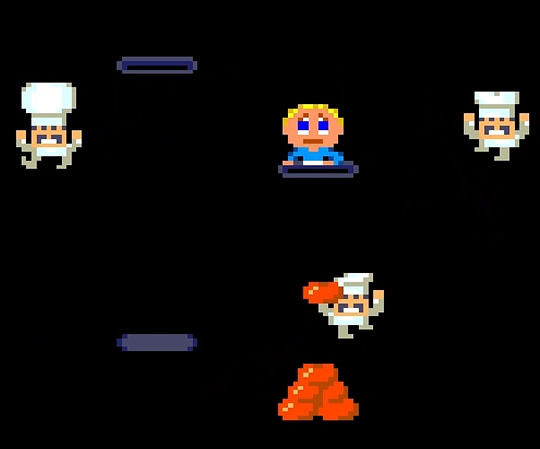
Charley Chuck falls down a hole to the delight of the opposing chefs in Food Fight, on Atari 50 on PS4
Game play session: https://youtu.be/gNNyrccnbSE?t=4330
#charley chuck#food fight#video game#arcade game#hole#atari#general computer corporation#atari 50#ps4#chefs#evil chefs#celebration#doe eyes#maybe they're all evil#death
0 notes
Text
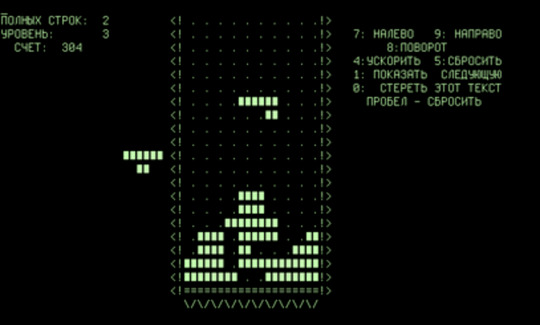
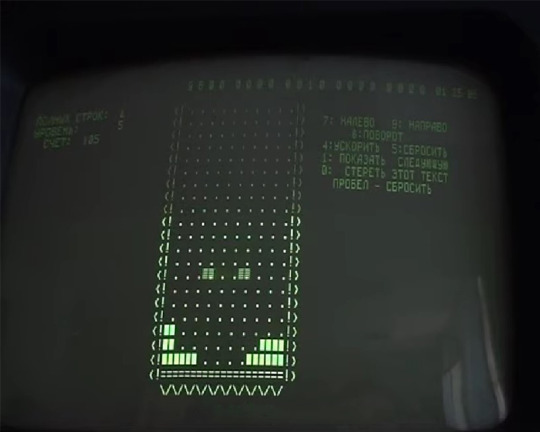
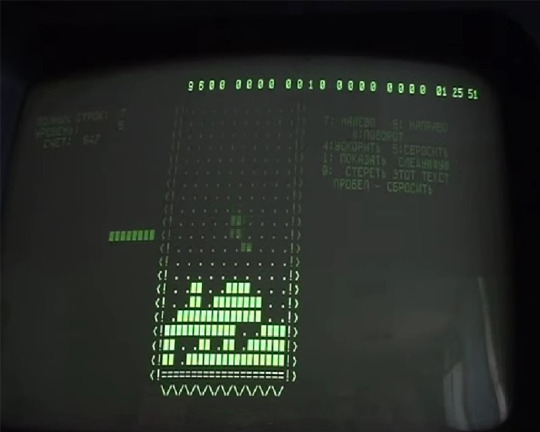


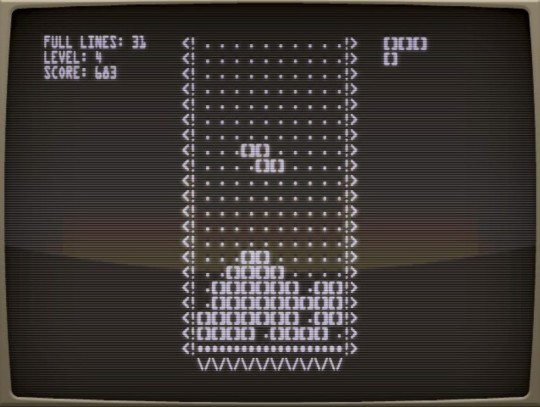
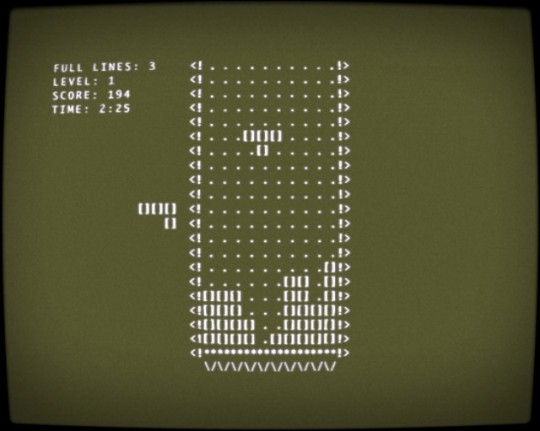
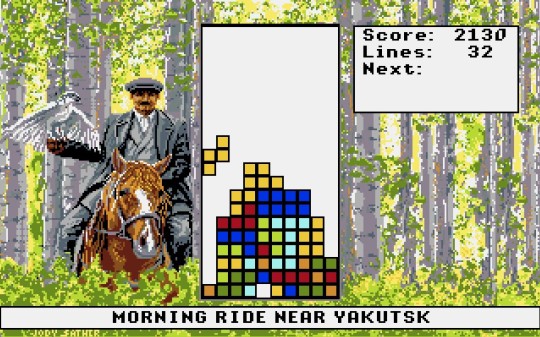
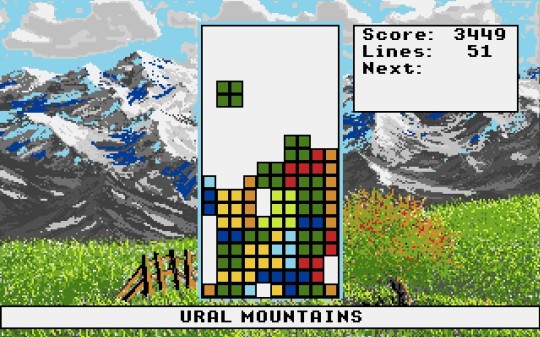

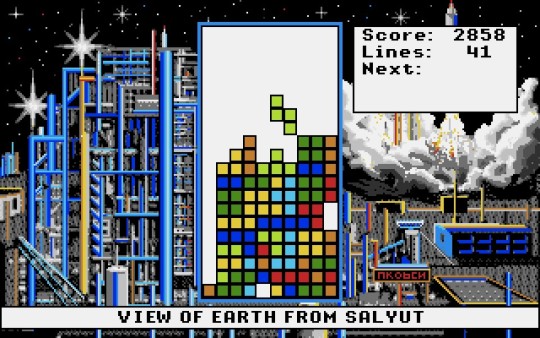
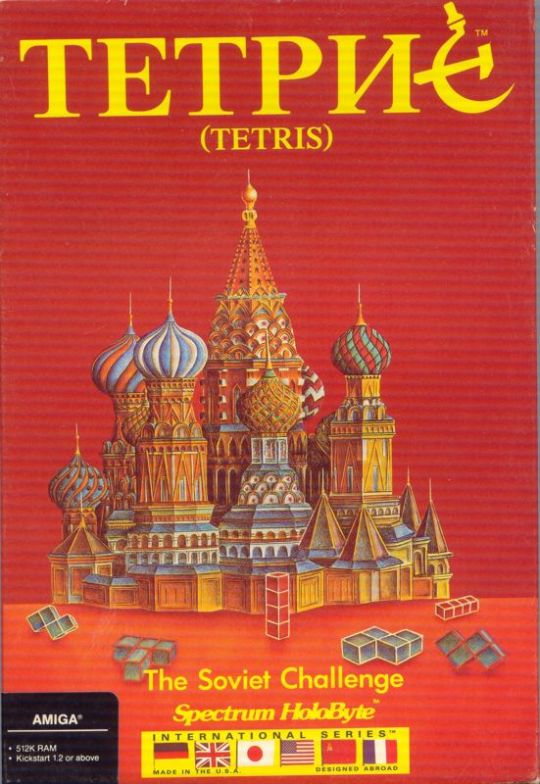
152.) Tetris
Release: June 6th, 1984 | GGF: Puzzle, Arcade | Developer(s): Alexey Pajitnov | Publisher(s): Mirrorsoft, Spectrum HoloByte, Bullet-Proof Software, SEGA, Atari Games Corporation, Tandy, Nintendo Co., Ltd., Tengen, Microsoft Corporation, Philips, Blue Planet Software, Intelligent Systems Co., Ltd., Jaleco, SETA Corporation, Arika, Capcom Co., Ltd., Hasbro Interactive, Ericsson, Crave Entertainment, Activision, Inc., WOW Entertainment, Psikyo, THQ Inc., Vanguard, Success, AQ Entertainment, Electronic Arts, Inc., GungHo Online Entertainment, Tetris Online, PopCap Games, Majesco, Ubisoft Entertainment, Enhance, Gameloft, Red Bull, Sanrio, N3TWORK | Platform(s): Mainframe (1984), Elektronika 60 (1985), DOS (1986), Arcade (1988), Amstrad CPC (1988), Amstrad PCW (1988), Apple II (1988), Apple IIgs (1988), Atari ST (1988), BBC Micro (1988), Commodore 64 (1988), Electron (1988), Famicom (1988), FM-7 (1988), IBM PC (1988), Macintosh (1988), MSX (1988), MSX2 (1988), PC-88 (1988), PC-98 (1988), Sharp X86000 (1988), TRS-80 CoCo (1988), ZX Spectrum (1988), Game Boy (1989), Genesis (1989), NES (1989), Windows (1990), CD-i (1991), SNES (1994), PlayStation (1995), SEGA Saturn (1996), Virtual Boy (1996), Dreamcast (1998), Nintendo 64 (1998), Ericsson T28 (1999), Game Boy Color (2000), Ericsson T28m (2001), Nuon (2001), WonderSwan Color (2002), SwanCrystal (2002), Game Boy Advance (2003), Xbox 360 (2005), Mobile (2006), Nintendo DS (2006), iPod (2006), Facebook (2008), Wii (2008), Nintendo DSi (2010), Android (2011) BlackBerry (2011), Nintendo 3DS (2011), PlayStation 3 (2011), PSP (2011), Windows Phone (2011), Fire OS (2014), Ouya (2014), PlayStation 4 (2014), PS Vita (2014), Xbox One (2014), Nintendo Switch (2017), J2ME (2018), Oculus/Meta Quest (2018), Browser (2019), SEGA Genesis Mini (2019), PlayStation 5 (2020), Xbox Series (2020)
41 notes
·
View notes
Note
Remember when Quaker Oats had their own video game?

I actually am old enough to remember when that one came out, but I don't actually remember it.
U.S. Games Corporation was a video game company founded by Donald Yu, which originally produced handheld electronic sports games. It pivoted to focus exclusively on video game software in 1981, and was acquired by cereal company Quaker Oats in 1982 to develop games for the Atari 2600.[1] U.S. Games released their first game, Space Jockey for the Atari 2600, in January 1982,[2] followed by 13 more cartridges in 1982 and 1983. Space Jockey and other early titles used the Vidtec brand name.[3]
youtube
neat

also neat

also also neat.
8 notes
·
View notes
Text
With everything going on with rooster teeth and Warner bros I find something interesting. Now I've been a hater of WB since early this year when I was in a play called "Merge" by Spenser Davis. it is about the independent gaming company, Atari, being bought out by Warner bros.
So what happened (in real life too, this show is based off of actual events) was that Atari was it's own independent company, revolutionizing the future of video games. But profits were low and they needed financial support. So Warner bought them out.
This came with more of a corporate feel to the company as opposed to the free laid back vibe they had before. But Atari was making profit. But Warner kept pushing. Their games dropped in quality. You got games like E.T, and Pacman 2600.
However there was a new 3rd party company, founded by the people who originally created Atari. They were making better games for atari consoles. Warner sued them for that, but lost the case and this led to an influx of knockoff and 3rd party games. Nearly destroying the video game industry.
TLDR: Warner bought atari and ran in into the ground
8 notes
·
View notes
Text
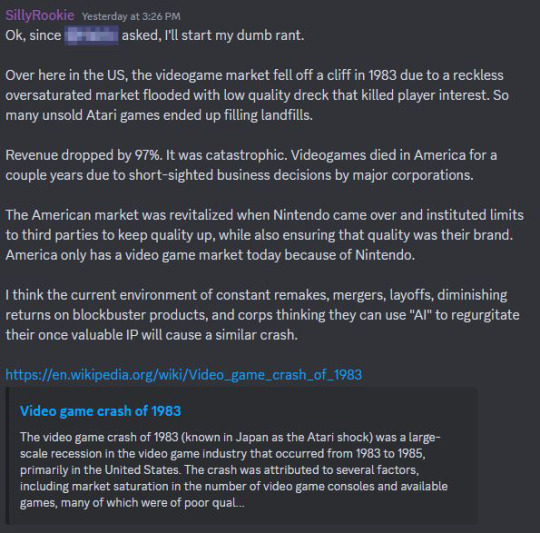


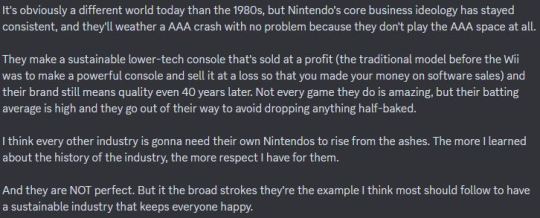

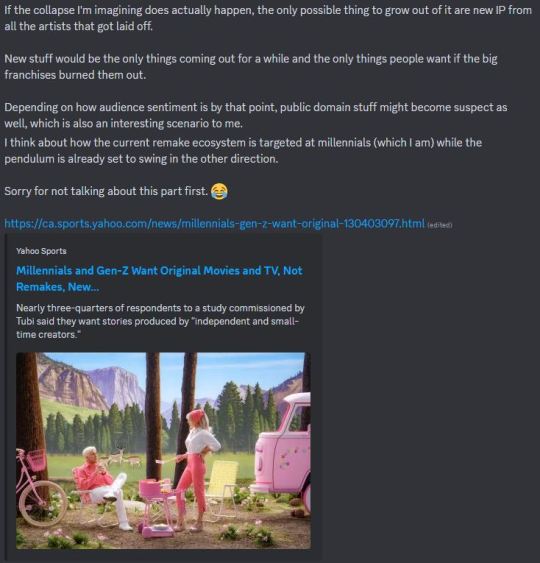

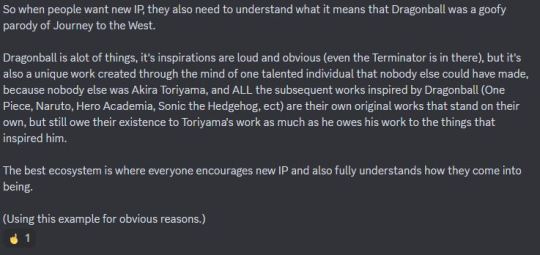
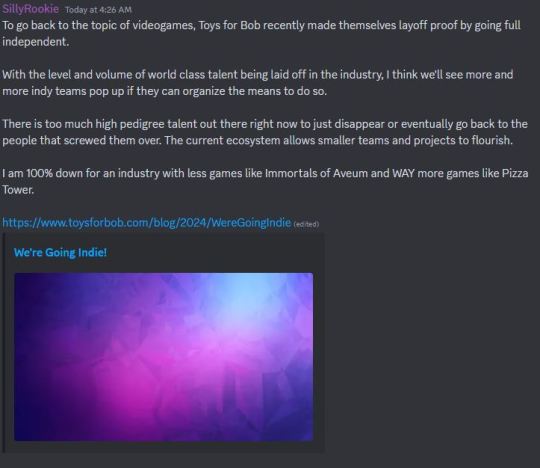
For those who can't see the screenshot post, for whatever reason it may be:
@sillyrookie posted:
Ok, since @hairiclilred asked, I'll start my dumb rant.
Over here in the US, the videogame market fell off a cliff in 1983 due to a reckless oversaturated market flooded with low quality dreck that killed player interest. So many unsold Atari games ended up filling landfills.
Revenue dropped by 97%. It was catastrophic. Videogames died in America for a couple years due to short-sighted business decisions by major corporations.
The American market was revitalized when Nintendo came over and instituted limits to third parties to keep quality up, while also ensuring that quality was their brand. America only has a video game market today because of Nintendo.
I think the current environment of constant remakes, mergers, layoffs, diminishing returns on blockbuster products, and corps thinking they can use "AI" to regurgitate their once valuable IP will cause a similar crash.
What I find interesting is how many classic IP will end up dying in the wake of this.
At the moment so many distinguished studios with established IP are getting bought up by corps, only to lay off the workers and shutter the studios.
The workers don't just lose their jobs, they lose the IP they created. Even if the team can regroup, they can't use the stuff they made anymore. The IP dies with the studio.
So stuff like this makes me feel like we're right at the brink of a collapse that will kill ALOT of once profitable IP when audiences are made sick and tired of alot of stuff they used to love.
These IP owners don't understand the products they own, the workers that make it, and the audience that buy it; and many in the c-suite have actual contempt for all three things.
When an IP stops being profitable, corps shut it down, lock it away unless somebody has the capital to buy it from them.
The only thing they understand is that an old movie made by humans generated billions of profits for them because an audience enjoyed it, and instead of taking new risks it's "better" business short term to just rehash the stuff that made money before. And if they expect "generative AI" to make more content even faster, expect a sea of endless remakes, each shittier than the last one.
Things are bad now, and they're gonna get way worse real fast.
I expect a cultural massacre. What does that look like?
It's obviously a different world today than the 1980s, but Nintendo's core business ideology has stayed consistent, and they'll weather a AAA crash with no problem because they don't play the AAA space at all.
They make a sustainable lower-tech console that's sold at a profit (the traditional model before the Wii was to make a powerful console and sell it at a loss so that you made your money on software sales) and their brand still means quality even 40 years later. Not every game they do is amazing, but their batting average is high and they go out of their way to avoid dropping anything half-baked.
I think every other industry is gonna need their own Nintendos to rise from the ashes. The more I learned about the history of the industry, the more respect I have for them.
And they are NOT perfect. But it the broad strokes they're the example I think most should follow to have a sustainable industry that keeps everyone happy.
Heck, I'll define "everyone happy:"
Artists properly paid, having job security, and able to BE creative.
Players having quality games to enjoy.
Businesses being sustainable for the long term, properly using the revenue from successes to experiment with new ideas, and not screwing anyone over.
[Image: Sonic saying "I WANT SHORTER GAMES WITH WORSE GRAPHICS MADE BY PEOPLE WHO ARE PAID MORE TO WORK LESS AND I'M NOT KIDDING".]
If the collapse I'm imagining does actually happen, the only possible thing to grow out of it are new IP from all the artists that got laid off.
New stuff would be the only things coming out for a while and the only things people want if the big franchises burned them out.
Depending on how audience sentiment is by that point, public domain stuff might become suspect as well, which is also an interesting scenario to me.
I think about how the current remake ecosystem is targeted at millennials (which I am) while the pendulum is already set to swing in the other direction.
Sorry for not talking about this part first. 😂
74% of that survey wants new stuff. The major IP holders are about to commit suicide if they go through with the "AI will make us 30 remakes per second" scheme.
One thing I hope DOESN'T happen is a backlash against honesty in the creative process.
We were culturally at a point where the average joe could understand that new ideas don't come from nowhere and are all mutations of old ideas.
Game of Thrones exists because Lord of the Rings came first, which owes it's existence to Norse myth and Beowulf, ect ect.
We're at the point where youtubers make games out of seeing what a song sampled from, the references a movie made, on and on.
But right now a popular spiel from "AI" charlatans to justify IP theft is the assertion that there's no difference between stealing copyrighted media for an LLM to regurgitate and a human being inspired by the ideas and experience they felt from another creator's work and creating a new thing under the established rules of copyright. It's a lie, but it keeps getting repeated to justify theft.
As the scam cycle winds down, I think they might be poisoning the discourse in a lasting way. We could go back to people lying about how ideas work, and that has only negative effects on human expression as a whole.
I want a world where everyone understands the difference between inspiration and a ripoff and can appreciate human creation better than previous generations have. We were right there before the scammers showed up.
So yeah, another rant out of me. 😂
So when people want new IP, they also need to understand what it means that Dragonball was a goofy parody of Journey to the West.
Dragonball is alot of things, it's inspirations are loud and obvious (even the Terminator is in there), but it's also a unique work created through the mind of one talented individual that nobody else could have made, because nobody else was Akira Toriyama, and ALL the subsequent works inspired by Dragonball (One Piece, Naruto, Hero Academia, Sonic the Hedgehog, ect) are their own original works that stand on their own, but still owe their existence to Toriyama's work as much as he owes his work to the things that inspired him.
The best ecosystem is where everyone encourages new IP and also fully understands how they come into being.
(Using this example for obvious reasons.)
Discord Post Reaction: [☝️ 1]
To go back to the topic of videogames, Toys for Bob recently made themselves layoff proof by going full independent.
With the level and volume of world class talent being laid off in the industry, I think we'll see more and more indy teams pop up if they can organize the means to do so.
There is too much high pedigree talent out there right now to just disappear or eventually go back to the people that screwed them over. The current ecosystem allows smaller teams and projects to flourish.
I am 100% down for an industry with less games like Immortals of Aveum and WAY more games like Pizza Tower.
4 notes
·
View notes
Text
Dammit.
One of my favorite sites, Atari Age, has just been bought out by Atari SA itself. One of the last bastions of the Old Internet (it's been around since 1998, and I've been signed up with them since 2005), a site made by fans for fans, is now just another part of a faceless corporate entity. There's already an Atari employee there as an admin and moderator, and the site's founder's replies all stink of corporate double-speak already.
And what really galls me is that there only seems to be a tiny handful of people on the site who feel the same way I do. The rest of them are "Congratulations on selling out! Yay, corporate overlords!"
On Reddit, when I try to voice my concerns, I just get "no sweaty,you don't understand why it's the best thing ever for the site :) :) :) :) :)" as a response, and when I ask them *how* it's a good thing, they just keep ":)"-ing at me instead of explaining.
Am I just Old Man Yelling At Cloud here?
8 notes
·
View notes
Text
W-A-S-D
Dear reader,
It's been a while since I last posted anything, hasn't it? My bad.
I have been juggling between Don't Starve Together (now that we have the Scrappy Scavengers expansion), Stardew Valley (now that the 1.6 update is finally out), Game Dev Tycoon, - all financed by my boyfriend - and greedy good ol’ Time Princess.
I'm starting to understand why my mom doesn't want my baby brother to play video games at a young age considering my… uh, outstanding dedication to them.
Like I said before in my now 404-ed Blogger page, this isn't even close to being my first time gaming around, so I’m well acquainted with the myths that can surround this infamous activity.
I'm no Sam Brenner (Adam Sandler’s character in the 2015 movie Pixels), but according to a few online dictionaries I found, I am a gamer, a.k.a. a person who enjoys video games. As a hobby, not as a profession.
If you never cared to Google it like me, you might ask yourself, what’s a video game? Where do they even come from?
Did aliens bring them to Earth, maybe?
Well, not quite.
I hope not to disappoint the world's most beloved gamer, Henry Cavill, with my poor research skills...

But yeah, taking Wikipedia as my source, video games can be defined as a form of entertainment that involves interacting with an input device, such as your keyboard if you're a PC gamer, to generate visual feedback on a display device, e.g. a monitor. It's similar to how Newton's Third Law of Motion states that for every action, there is an opposite and equal reaction.
During their earlier history, video games were mostly related to research projects at universities and large corporations as academic and promotional devices, rather than to the general public's entertainment.
One of the first examples of a modern video game that we know of was patented in January 1947 by Thomas T. Goldsmith Jr. and Estle Ray Mann, and it's a thing called a "cathode-ray tube amusement device”.
It basically consisted of an analog device that lets you move a dot on the screen to simulate a missile being parabolically fired at paper drawings fixed to the screen, inspired by radar display technology. And, yes, the first video game ever was essentially an Angry Birds prototype.
Over the following years, other game patents were created with different means of display and whatever, but none of them were able to achieve the commercial success of Atari's inaugural arcade game, Pong, in 1972.
The release of this timeless video game played a pivotal role in establishing the industry as we know it today, not to mention that one of the first consoles ever was also released a couple months before in that same year; I'm talking about Magnavox' Odyssey home console.
Speaking of the Xbox’s great great great grandmother, it's well-known that video games tend to be classified by platform because of the differences there can be when comparing one piece of hardware to the other, so we have:
Arcade games
You can play these in the coin-operated machines of the same name, as seen in the beginning of Adam Sandler's Pixels movie. The classic single-game cabinet only allows you to play the one game it was designed for, yet this concept has been popular in the US since the 1970s, until it began dying down by the late 1990s when people started to bring the arcade experience home with consoles’ growing popularity and ever-developing technology.
Console games
These can be enjoyed in specialized electronic devices that consist of a main unit - the “console” - that has the hardware that you're supposed to connect with your display device of choice and a game controller like this one: 🎮.
Let's take a moment to reminisce here because, back in my days, you needed to buy a game's cartridge to be able to play it, which meant offline and immediate access at the cost of lower storage capacity and physical bulkiness. But, even before the world wide web, Control Video Corporation (CVC) was an early pioneer in downloadable games and cloud saving for consoles... before it went bankrupt during the 1983 video game crash and was merged with AOL.
CVC introduced the GameLine, a dial-up game distribution system designed for the Atari 2600 console and introduced in 1986. Despite its innovative concept, it was ahead of its time, lacked licensing from most video game companies, and ultimately failed, like most good things in life. Had they waited for the modern Internet and the Cloud to be created, they could have seen the same success as Xbox Live and PlayStation Network years later!
Due to coding and/or hardware incompatibilities, you can only play games in a console if they are designed for it, meaning you can't directly transfer a PlayStation 2 game into a PlayStation 4 despite them being brand models developed by the same company. Sony not sorry.
PC games
You can always download them to your desktop computer or laptop from their official website, if there's any, or from a trusty storefront like Steam… as long as the software requirements match. Since computers are not gaming-exclusive devices, there may and most likely will be differences when running the same game on another computer!
Mobile games
You can download these from a trustworthy website as an APK file to be installed on your cellphone or tablet, or just go ahead and use a digital distribution service like Google's Play Store or Apple's App Store, like the system might recommend. Though, much like PC games, these tend to have specifications that your phone must meet for them to run properly.
Smartphones and tablets are probably the only case of being both the input and the display device simultaneously without having traditional buttons as an input option, unlike the Nintendo Switch or the PlayStation Vita, and that must be exactly why so many people dislike mobile gaming.
Admittedly, some games can become more challenging with the whole “inaccurate touchscreen controls” part, notably in PUBG Mobile and Don't Starve Pocket Edition. Except the latter has shittier controls, per its Google Play reviews.
I haven’t played arcade games in a LONG time because my favorite arcade got super expensive in its last few years before closing down, leaving me with nothing but fond long-term memories of grabbing digital eggs using a basket, playing Coldplay's Yellow in a plastic guitar EVERY time, table-hockey-ing, etc.
However, I have been consistently trying out PC and mobile games across my lifespan. Especially the free-to-play ones, since my family didn't allow me to spend a single penny on video games when I was younger.
And, oh boy, isn't the list of games I've tried criminally long.
Blaming my unending passion for video games on my predisposition is only fair. I mean, I remember my mom was able to defeat Mario Bros.’ Bowser in a single day when I was a child, and hearing similar stories about her older sister's gaming prowess.
Come to think of it, we must've had a NES console back when all that happened, considering my faint memories of being thrilled to play Duck Hunt. That couldn't have happened irl otherwise.
Also, my cousins had a living room computer BRIMMING with, uh, ✨ free copies ✨ of various popular games that we often played together when we were in elementary school.
I did have a couple of consoles of my own, including some sort of green, translucent knock-off GameBoy I was gifted at a school event and what I think was a PlayStation, but quickly lost both.
My cousins were gifted a PlayStation 2 of their own later on, when it was a thing, until it got damaged because they were using pirate cartridges. Or so we were told back in the day; it could’ve been a dirty reading laser in reality, but, you know, my cousins lived in a very small town, so it was a miracle that they had that console in the first place.
I didn't get to bond with console games much because I found the controllers too difficult to use with my poor hand coordination, and couldn't practice much, so I was stuck with mobile Tetris and Bounce Tales, both of which I found in my grandpa's phones.
It wasn't until some time after my middle cousin passed me down her old Facebook account that I found what would be my main source of entertainment for the next year or so: social network games.
They were THE SHIT when I was middle school aged and Facebook kept spreading across all corners of Spanish-speaking countries.
Ever heard of FarmVille or Dragon City? These ancient Facebook games, and other titles, are a type of online game that is played through social media. They tend to have multiplayer gameplay mechanics and use real-time analytics to sort of motivate you to spend real money on in-game resources and/or consistently log in for rewards.
All social network games used to be browser games at first, meaning you could play them exclusively on Facebook desktop for instance, but as mobile gaming took off, many of the games were re-released for mobile as well.
But Facebook is not the only one who ventured into browser games. This category includes anything you can play using a web browser like Ecosia. They're mostly free-to-play and can be single-player or multiplayer, and are also grouped by their software platform, for example, Flash games.
A couple of famous examples include Club Penguin and the McDonald's Video Game, but personally I was more into Moshi Monsters and whatever “girly” games you could find on the in-browser hubs JuegosJuegos.com, friv.com and DressUpGames.com, in particular.
Even TV channels like Disney and Discovery Kids had TONS of Flash games available on their official websites when I was a kid, and so I spent a lot of my free time visiting those.
Then, tragedy struck: Adobe Flash stopped being supported between December 2020 and January 2021, mainly due to security concerns, dealing a debilitating blow to browser gaming. This sort of forced me to dive a lot more into what the Google Play Store and Steam had to offer.
While I’m pretty flexible in terms of the platforms I’ve tried, I remain selective when it comes to the genres. Although, that doesn't exactly mean I dislike any, just that I may prefer to watch the gameplay videos on YouTube most of the time.
For instance, I'm a big fan of the first 5 Five Nights at Freddy's (survival horror) installments and everything that came out after Grand Theft Auto: San Andreas (action-adventure), yet I have no intent of playing any of them myself. I'll stick with simulation and strategy games, which I excel at and relax with.
About video game genres, they're not really related to the setting or story of the game as literary genres are, but by the way the player interacts with the game.
I’m not diving into specifics here because games often incorporate key features from all genres all the time or blend them together into hybrids, making it useless to try to differentiate them. Plus, there are countless sub-genres to consider. Even the Dark Souls saga is considered to have its own genre!
Now, it's no secret that females and minority groups tend to get harassed in shooter and MOBA (multiplayer online battle arena) games’ communities, so that can obviously make me feel hesitant about joining those spaces.
Highly competitive environments often amplify the toxicity of the yappiest players, especially in multiplayer games, and that can lead to the misconception that, for instance, all League of Legends players are disgusting, when in reality it might only be a small percentage of ill-mannered people that's deterring potential new players. Then again, it is League of Legends that we're talking about here…
Circling back to Dark Souls, much like what SORRYLAG narrates in this video, I'd add that there's this weird pressure in the video game world about who can beat the games with the most challenging gameplays with no health penalties, or who can speedrun the fastest, or who discovers the most convoluted easter egg, that I just can't relate to as someone who's obsessed with Stardew Valley’s more peaceful essence.
It's hypocritical to bash or segregate others for enjoying the exact same thing you're doing just because they have less experience or different preferences.
I'm always up for a challenge, sure, but stressing over completing a difficult and super precise video game mission isn't my idea of fun.
And I refuse to think I'm less of a gamer just because I like mobile gaming, don't want to beat Sekiro and won't even pick up Duty's Call. I'm not doing this as a profession for a reason, you know? I am barely able to face one of Don't Starve Together’s bosses solo with the help of frog ponds.
Setting aside the standard fandom issues around them, I wouldn't say video games are a problem on their own. It's not Donkey Kong's fault that we've created so many stereotypes around a lifeless entertainment format.
Do they cause aggression and violence? No. A kid will not grow up to be violent because of a video game, unless their parents, teachers or community fail to teach them that it's not okay to act like that. Take it from someone who grew up playing Mortal Kombat Trilogy and Grand Theft Auto: San Andreas (not knowing it wasn't about driving around and stealing hookers' money), and thus had all the potential in the world to become a samurai gangster, apparently.
Are they addictive? Look, those sneaky strategies to make us play more frequently like real-time statistics don't help, but truth is anything that makes you produce dopamine and other happy hormones will become addictive if you struggle with discipline and self control in general. Even food. We're just too scared of taking accountability as humans.
Do they cause loneliness or social isolation? It can be the case for some, but that doesn't mean all gamers are lonely. I mean, my boyfriend and I found each other, didn't we? Not to mention you'll fail at most multiplayer games with no teamwork or proper communication, and there are tons of online communities out there that welcome anonymous users, so how do you even get lonely if it's not by perspective?
Are they for kids, teens or men only? We're in 2024, come on. There's plenty of options for everybody.
Such a shame that some people will never get to experience the joys of playing video games because they're too stubborn to believe anything other than what one news article of dubious origin said.
We can't really force a person who dislikes video games for any reason to love them, of course, but it's always nice to see them understand that respecting others' likes and choices will not cause the end of the world, isn't it?
Personally, I tend to choose playing whatever video game I'm trying to (slowly) complete at the moment over asking people to hang out whenever I'm free, because going out is expensive anyway. This isn't affecting my quality of life any more than pollution does because I still do my chores and work despite the suffocating heat of a tropical summer, so there's that.
In conclusion, as long as video games don't get in the way of your self-care, daily habits, finances and overall health, you should feel free to play them as much as you can, and want.
Unlike the mistaken belief that video games will ruin your brain or contribute to obesity per se, you can get benefits from most of them, actually. As of today, we have the VR goggles + omnidirectional treadmill + exploring Skyrim by foot combo for fitness purposes, puzzle games for cognitive skills development, strategy games for planning and problem-solving, action games for reaction time improvement, and so on.
But, once again, gaming shouldn't negatively impact your life. I couldn't believe my eyes when I read about that one Yu-Gi-Oh! tournament where a female participant had to step out due to the odor. Even sports athletes shower before competing, so my hobby is not their excuse for being dirty!
What do you think about video games, though? Yay, or nay?
Until next time!
- N
#spotify#stardew valley#mr qi#video games#dark souls#dst#league of legends#gta 6#gta san andreas#blog#mobile games#pc games#arcade#console#history
4 notes
·
View notes
